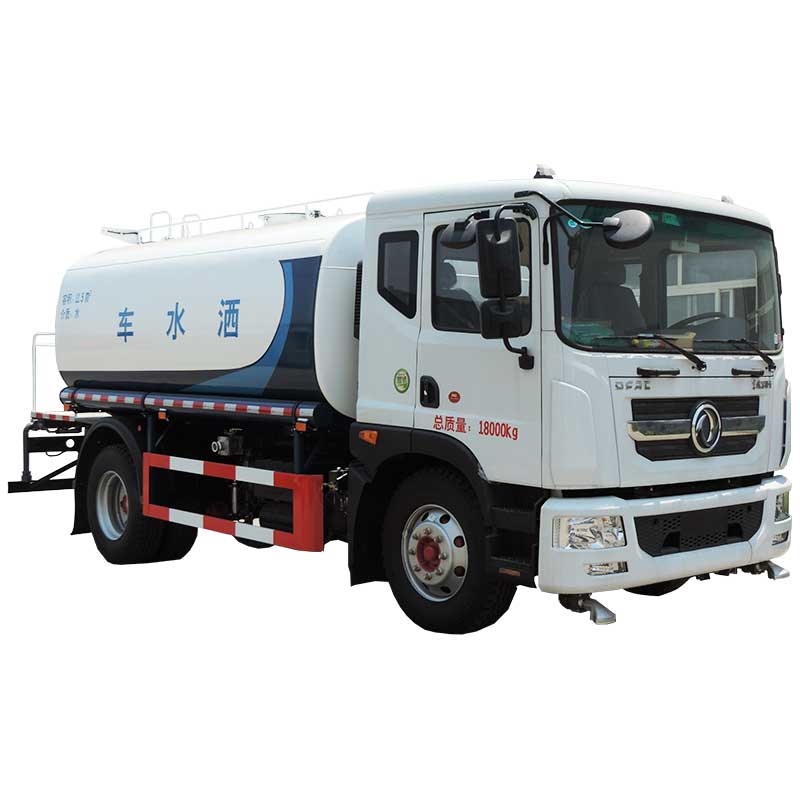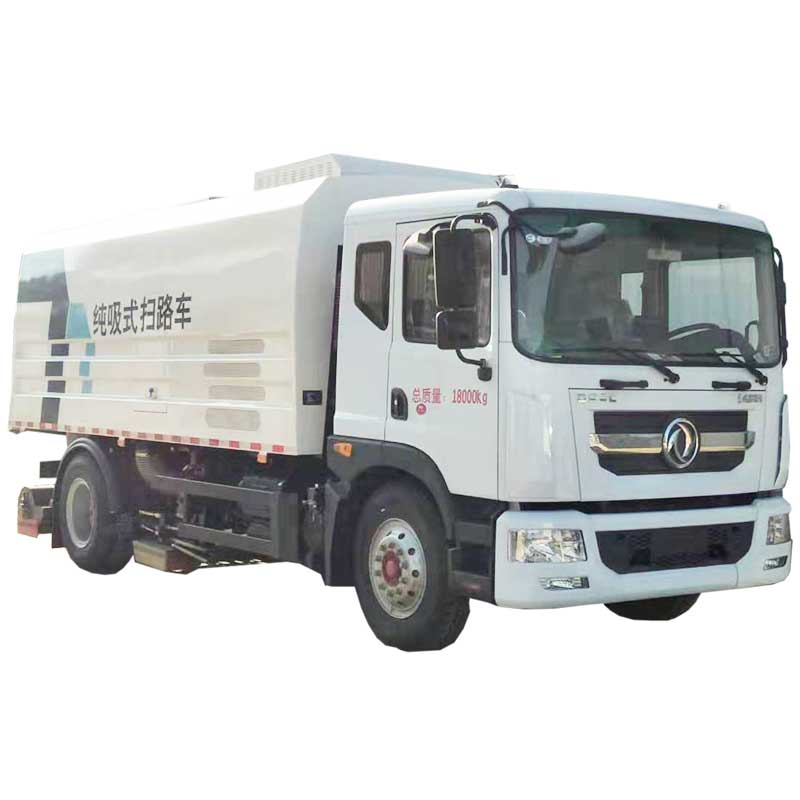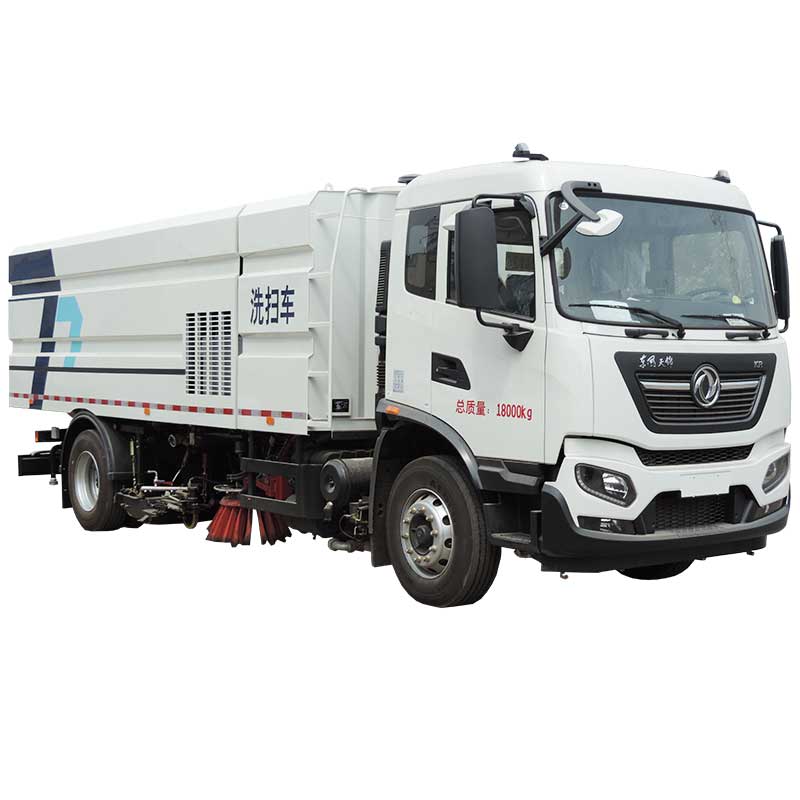The Development of Semi Truck Trailers
2024-03-01 02:11
This article describes the meaning, origin, development and types of semi-trailers. Let's follow the article to understand semi-trailer from its origin. Learn about the present types of semi-trailers based on its development and look forward to its future development.
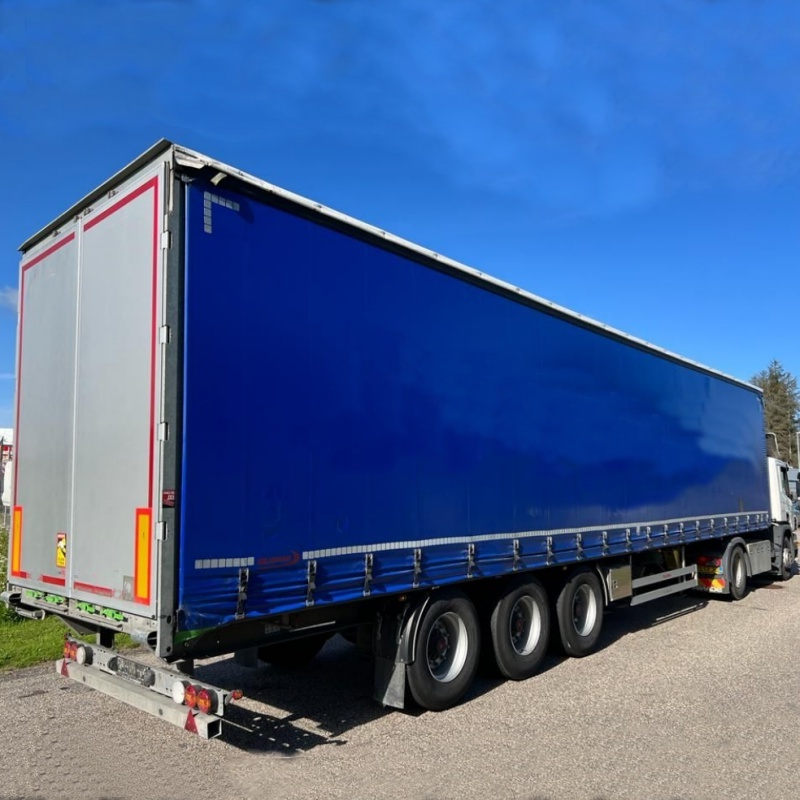
Why are they called semi trucks
The semi truck trailers have this name because they do not have a front axle and are therefore different from trailers that do have a front axle.
In other words, the weight of this type of trailer and its contents is supported in part by its wheels, with the rest of the support usually coming from the tractor towing it. In the case of a tandem tractor-trailer configuration, it can also be supported by a so-called dolly or the rear end of another trailer.
Semi-trucks, also known as semi truck trailers, tractor-trailers, or 18-wheelers, are necessary for long-distance transportation. Today's trailer for semi truck are typically 18-wheel articulated trucks consisting of a trailer unit with multiple axles and wheels and an engine-driven tractor unit.
Semi truck trailers do not have a front axle, which makes it simple to connect and disconnect the trailer, making it easier to load and unload cargo quickly.
The history of semi trucks
A Scottish-American designer and inventor is widely credited with inventing the semi-trailer. His name is Alexander Winton and he lived in Cleveland, Ohio.
Alexander Winton sold 22 automobiles in 1898, which created the need to deliver the cars to buyers. Since the buyers were located all over the country, the cars had to be shipped hundreds of miles from Cleveland. This presented a major problem: if the cars were driven to the customer, the cars would have increased mileage and wear and tear, and the actual delivery would have been costly.
To deliver customized cars to customers without increasing the mileage of the vehicle, Winton designed a car transport unit that could be towed by a truck and is considered the first trailer for semi truck. Soon, other automakers began purchasing his semi truck trailers to transport their vehicles.
Development of the semi truck trailer
The use of "tractor trailers" has increased dramatically, as they offer speed and flexibility not available in trains and horse-drawn trailers.
The logging industry has influenced the advancement and popularity of trailer for semi truck. Timber semi truck trailers were widely used to transport logs from forests to lumber mills. And many other industries continued to expand the semi-trailer concept.
As a result, the various types of semi truck trailers we see on our highways today are an evolution of the semi-trailer designed to haul a single vehicle.
Over more than a hundred years, Winton's two-wheeled trailer for semi truck has evolved into a three-axle, eighteen-wheeled semi-trailer.
Types of semi trucks
Semi truck trailers have come a long way since the early 1900s when they were used as custom car haulers. Today, there are a variety of semi-trailer types, including:
Flatbed Semi Trailer - Flatbed trailers are semi truck trailers designed to transport cargo or containers that do not need to be fully enclosed. Since there are no walls or roofs, they can also be used to transport items that are too tall or wide for a dry van trailer.
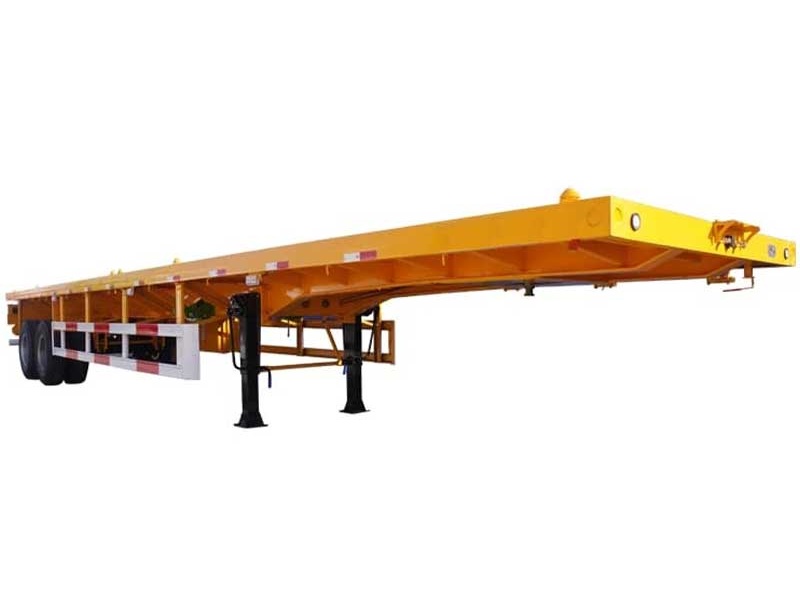
Low Bed Trailer - Similar to flatbed semi truck trailers, so-called low bed trailers are used to transport exceptionally tall and/or heavy loads. Typically, low-bed trailers are used to transport oversized equipment such as bulldozers or parts of large industrial equipment.
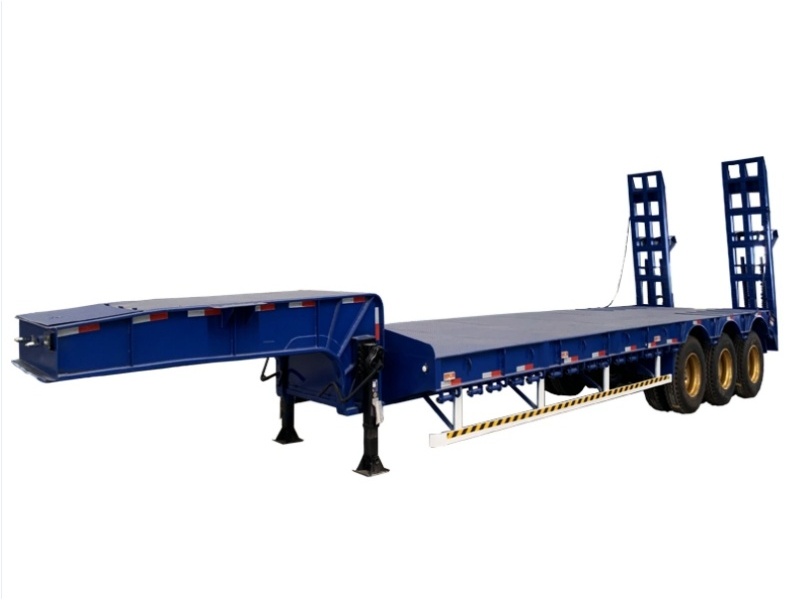
Container trailer - They are another variant of flatbed trailers. These trailer for semi trucks are used to transport containers using a chassis designed for particularly heavy loads. Containers can be easily loaded onto and unloaded from container trailers, making the transportation of goods and materials very efficient.
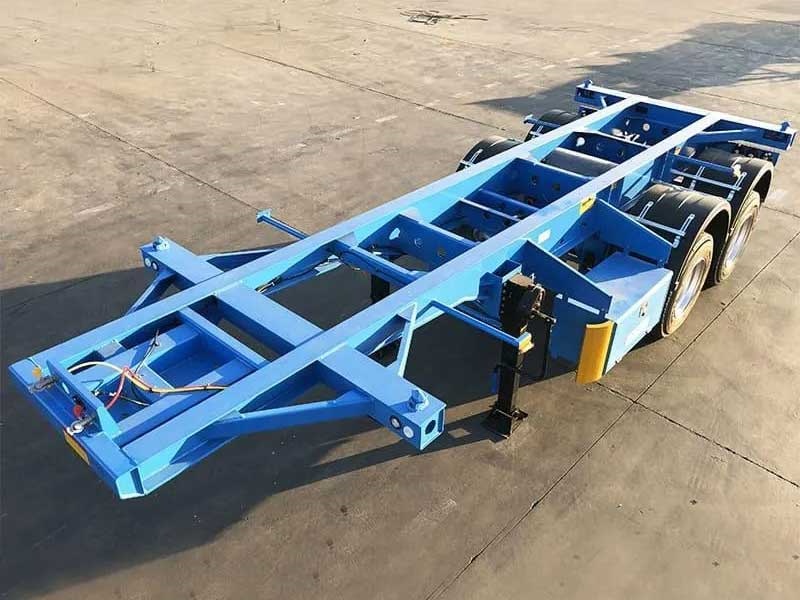
Dump Trailer - For more efficient transportation and unloading of loose materials. When they arrive at their destination, their beds are raised or tilted to dump their contents.
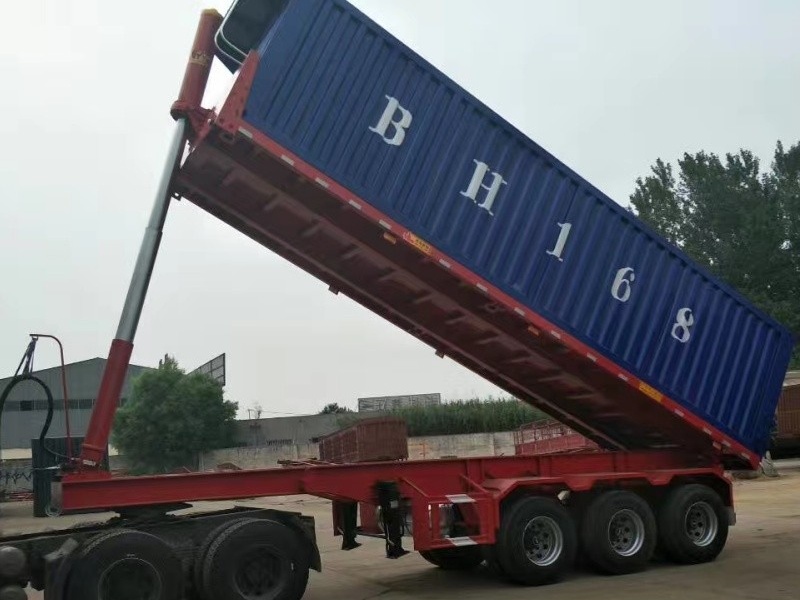
Dry Van Trailer - Named for their ability to protect cargo from rain and general weather, these fully enclosed semi truck trailers are used to transport many different types of goods and materials.
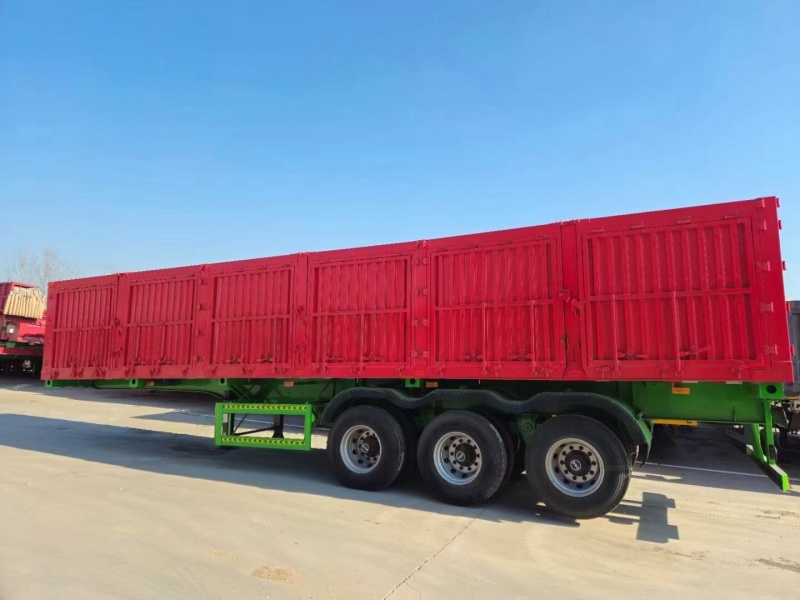
Car Transport Trailer - Car transport trailer takes the vehicle transportation concept to a new level by allowing vehicles to be transported on two levels. This configuration cleverly doubles the carrying capacity of the trailer.
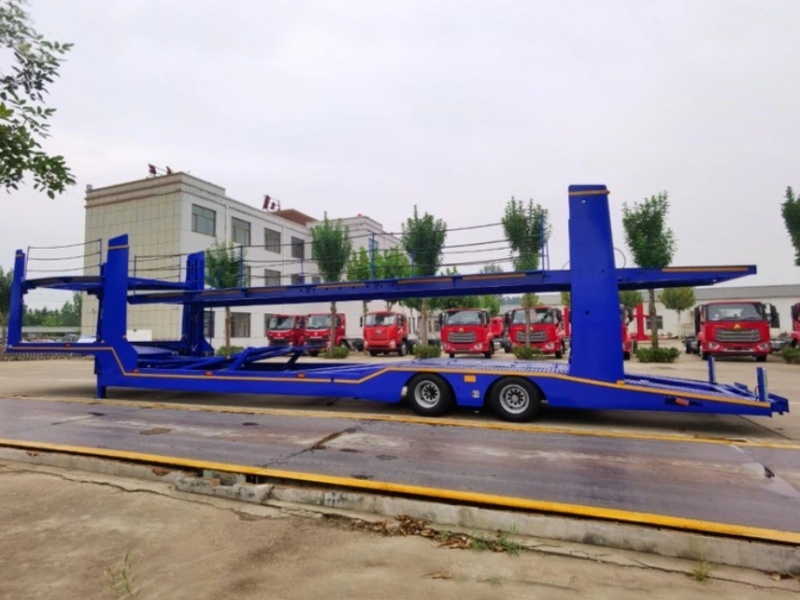
Tank Trailer - Designed to safely and efficiently transport liquids and gases. Typically, they have specialized membrane tanks and multiple layers of vacuum insulation.
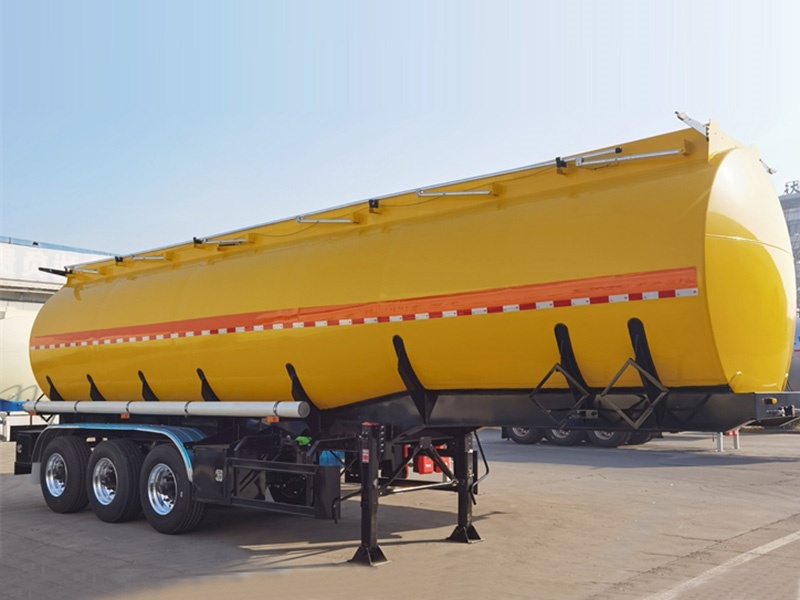
Superlink trailer-Connecting flatbed trailers, railing trailers, or dump trailers in tandem to make trailer loads larger and more efficient. They are also very flexible on the road and are suitable for one-off transportation of large volumes of goods.
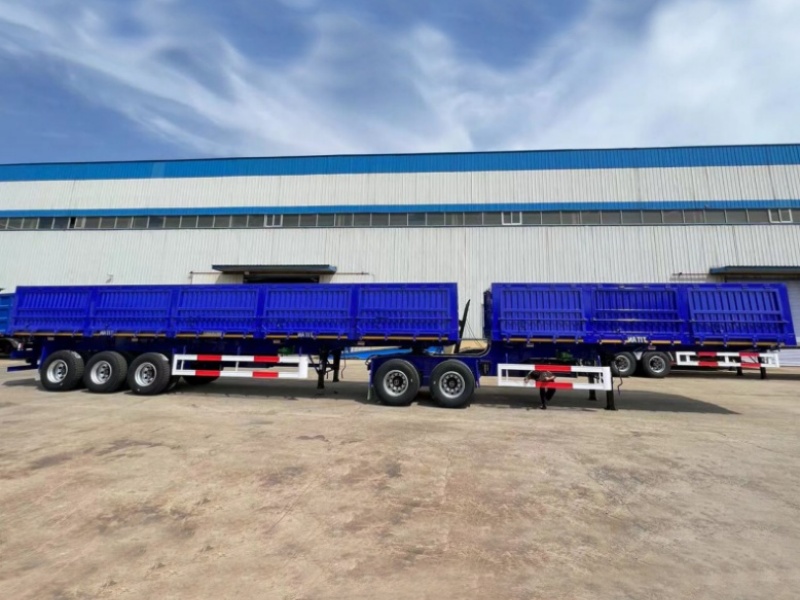
What is the future of semi truck trailers?
What will semi truck trailers look like in the future and what features will they have? It's hard to say, but one thing is clear: semi truck trailers will continue to evolve to meet the changing needs of businesses. Technologies that are in their infancy today - or that haven't even been imagined yet - will surely be taken for granted by then, as inventors and engineers continue to push innovative car haulers in many new directions.
What do semi trucks carry
Trailers for semi truck are used in various industries for a variety of purposes.
Transporting products from manufacturers to warehouses, distribution centers, and retail locations. Deliveries to customers, retailers, and regional logistics and distribution centers on time.
Transporting large machinery, equipment, and supplies to construction sites.
Transporting fuel from refineries to gas stations.
Collection and transportation of recycling and garbage as part of waste management.
Transporting agricultural equipment, livestock, and crops.
Helping with residential and commercial relocation services.
Transporting supplies and rescue workers during crises and disasters.
Due to their adaptability and heavy-duty capacity, they are vital to current logistics and transportation processes.
Frequently Asked Questions (FAQs) – Is a semi-truck the same as an 18-wheeler?
Yes, it is common practice to use the phrases "semi-truck" and "18-wheeler" interchangeably. Both terms describe the pairing of a tractor-trailer with an 18-wheeler. Power and control are provided by the tractor, while the trailer is used to transport the load. The number of wheels on the entire vehicle combination is explicitly referred to as an "18-wheeler" to emphasize its enormous size and load-carrying capacity.
Summary
Semi truck trailers have had 126 years of development since their introduction. There are more and more types of trailer for semi truck and more and more wide range of application industries. With the development of science and technology, semi truck trailers will be more and more perfect, toward the direction of multi-function, high load, low energy consumption, and low cost. Trailer for semi trucks will make a more important contribution to the world's transportation industry.
Get the latest price? We will reply as soon as possible (within 12 hours)
























